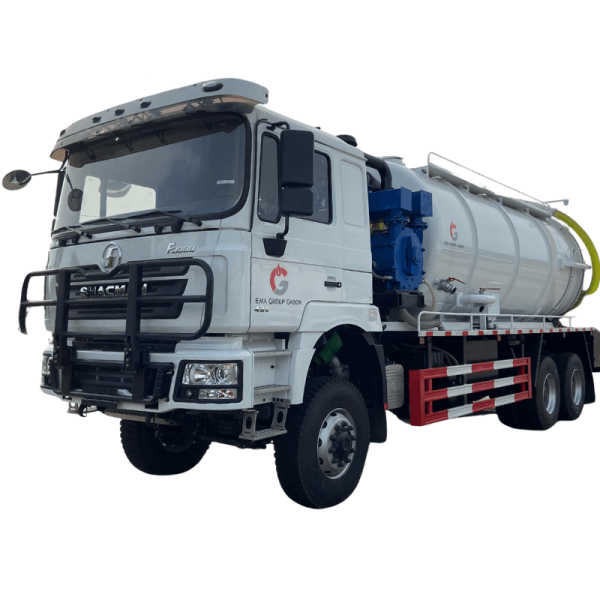Introduction:
Garbage compactor trucks play a crucial role in waste management systems worldwide. These specialized vehicles are designed to collect, transport, and compact solid waste efficiently. However, operating a garbage compactor truck can be a hazardous task if proper safety measures are not followed. In this article, we will explore the importance of safety in garbage compactor truck operations and provide a comprehensive guide to ensure the well-being of operators and other road users.
1. Understanding Garbage Compactor Trucks
Garbage compactor trucks, also known as waste collection vehicles or refuse compactors, are equipped with a hydraulic compactor system that compresses solid waste to maximize the truck's carrying capacity. These trucks come in various sizes and configurations, ranging from small rear-loading compactors to large front-loading compactor trucks used in municipal waste collection.
2. Common Hazards Associated with Garbage Compactor Trucks
Operating a garbage compactor truck poses several risks to the operator and other individuals in the vicinity. Some common hazards associated with these vehicles include:
- Moving parts of the compaction system
- Slips, trips, and falls while loading or unloading waste
- Exposure to hazardous materials or sharp objects in the waste
- Traffic accidents while maneuvering the truck on busy roads
3. Safety Precautions for Garbage Compactor Truck Operators
To mitigate the risks associated with operating garbage compactor trucks, operators must adhere to strict safety protocols. Some essential safety precautions include:
- Proper training: Operators should undergo comprehensive training on the safe operation of garbage compactor trucks, including handling the compaction system, navigating tight spaces, and observing traffic laws.
- Personal protective equipment (PPE): Operators must wear appropriate PPE, such as gloves, safety boots, and reflective vests, to protect themselves from potential hazards while working.

- Regular maintenance: Garbage compactor trucks should undergo routine maintenance checks to ensure that all components, including the compaction system, brakes, and lights, are in optimal working condition.
- Avoiding overloading: Operators should adhere to the truck's weight limits and avoid overloading the compactor with waste, as this can affect the vehicle's stability and braking capabilities.
4. Safe Loading and Unloading Procedures
Loading and unloading waste from a garbage compactor truck require careful attention to prevent injuries and accidents. Operators should follow these safety procedures:
- Park the truck on level ground and engage the parking brake before loading or unloading waste.
- Use caution when operating the compaction system, ensuring that there are no obstructions or individuals near the compactor.
- Secure the loading area to prevent waste from falling out of the truck while in transit.
- Maintain a safe distance from the truck while it is in operation to avoid getting caught in moving parts or trapped by the compactor.
5. Emergency Response and Incident Reporting
In the event of an emergency or accident involving a garbage compactor truck, operators must be prepared to respond swiftly and effectively. Key steps to take in an emergency situation include:
- Contacting emergency services immediately if there are injuries or hazardous materials involved.
- Securing the scene to prevent further accidents or injuries to bystanders.
- Documenting the incident by taking photographs, collecting witness statements, and filing a detailed report for review by the appropriate authorities.
6. Regulatory Compliance and Best Practices
Garbage compactor truck operators must comply with local regulations and industry best practices to ensure the safe operation of these vehicles. Some key regulatory requirements and best practices include:
- Obtaining the necessary permits and licenses to operate a garbage compactor truck in a specific jurisdiction.
- Following waste disposal guidelines and recycling protocols to minimize environmental impact and promote sustainability.
- Participating in regular safety training sessions and refresher courses to stay updated on the latest safety standards and technologies in waste management.
7. Technology and Innovation in Garbage Compactor Truck Safety
Advancements in technology have led to the development of innovative safety features and systems in garbage compactor trucks. Some notable technologies that enhance safety in these vehicles include:
- Rear-view cameras and sensors to assist operators in maneuvering the truck in tight spaces and avoiding collisions.
- More hints that can prevent accidents by applying the brakes when a potential hazard is detected.
- Telematics and GPS tracking systems that provide real-time monitoring of garbage compactor trucks, enabling fleet managers to optimize routes and improve operational efficiency.
Conclusion:
Safety is paramount in the operation of garbage compactor trucks to protect the well-being of operators, pedestrians, and other road users. By adhering to strict safety protocols, following best practices, and leveraging technology to enhance safety features, garbage compactor truck operators can minimize risks and ensure a secure working environment. It is essential for waste management companies and municipalities to prioritize safety in garbage compactor truck operations and invest in training, maintenance, and safety equipment to prevent accidents and promote a culture of safety in the industry.
